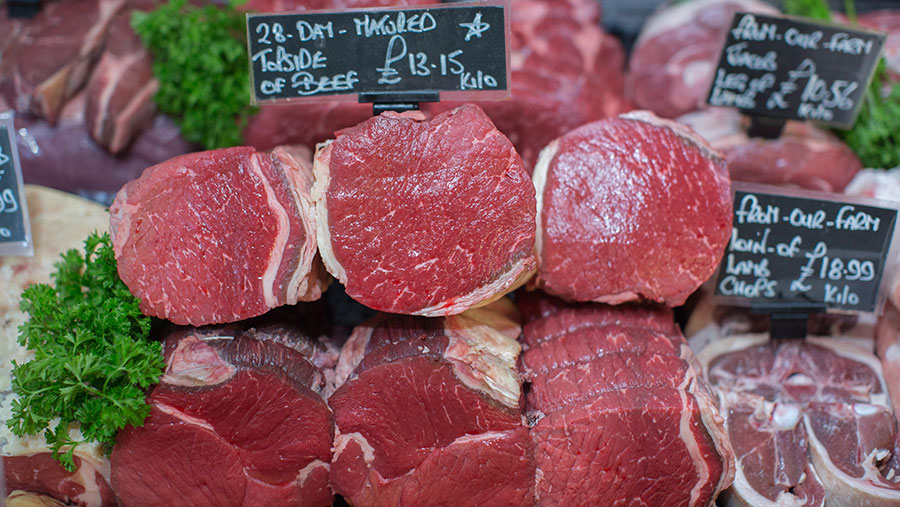Opinion: Brexit is a threat to mixed farming
 © Tim Scrivener
© Tim Scrivener Last time I checked US agriculture, I discovered that over 50% of its poultry industry was under the control of just four conglomerates; 60% of its pig industry was also controlled by four corporations (some of which were also involved with poultry); and 80% of its beef was sold to – you’ve guessed it – four massive processors, some of whose tentacles spread across all sectors.
It’s called vertical integration and in essence it makes the farmers who feed the animals supply the huge concerns as their virtual employees.
See also: Prepare for turbulent Brexit, farmers warned
I am, of course, aware that similar arrangements exist in Britain, although they do not dominate as they do across the Atlantic.
However, if government policies change in the way some economic advisers advocate, much of our industry could be heading towards the US model.
Consider the advice to government by the Chatham House think tank a few weeks ago.
“Agricultural spending should be reduced,” it said, and the smaller amount “should be refocused on R&D, and on incentives to manage the environment better, mitigate climate change and build resilience to disease and climate shocks”.
No mention is made of domestic food production, improving self-sufficiency or profit for those who do the work.
But the report blithely acknowledges that such a reform “will cause some businesses to fold or substantially change”.
And it concludes: “only a market-oriented model would enable the UK to benefit from free trade” and that this would mean “lower food prices… and allow for substantial budget savings to support the environment and public finances”.
 David Richardson farms about 400ha of arable land near Norwich in Norfolk
David Richardson farms about 400ha of arable land near Norwich in NorfolkDefra secretary Michael Gove, of course, professes strong support for our industry while emphasising his love for the environment.
But he exposed his ignorance and prejudice the other day when he accused farmers of “drenching their soils with chemicals”.
NFU deputy president Minette Batters slapped him down as “speaking mistruths” and said she did not recognise his views.
She retorted that farmers were “using 31% less nitrogen fertiliser, 55% less phosphates and 50% less active ingredient in pesticides than they were in 1990”.
And she was disappointed Mr Gove failed to recognise the work farmers were doing to conserve and enhance soils.
Meanwhile Mr Gove invited applications for grants to improve productivity or add value to meat, milk and fruit and said he had £40m available for such projects.
On the face of it, this was a generous and unexpected gesture. He then qualified his statement by saying applicants would have to invest at least £50,000 of their own money to qualify.
This effectively ruled out the small farmers he claimed he wanted to help and exposed his lack of knowledge of the reality of most farmers’ finances.
It’s a grant that will realistically only be taken up by large farmers. Not that I have anything against large farmers.
I used to think I was one myself, until declining profits made our scale of operation distinctly marginal.
And that’s the kind of situation that often leads to vertical integration, with control being handed to big corporations – as in the USA.
Is that what we want here in the UK? Or would we, the farmers and the people of this country, our customers, prefer the mixed farming economy we have now, which produces much of the food, the landscapes and the environment we’ve come to appreciate?
The NFU is clear that direct payments of some kind are crucial for the future. We need help to manage volatility and support enabling farmers to earn sustainable incomes.
Without such aid the structure of our industry is at severe risk. Take note, Mr Gove.
